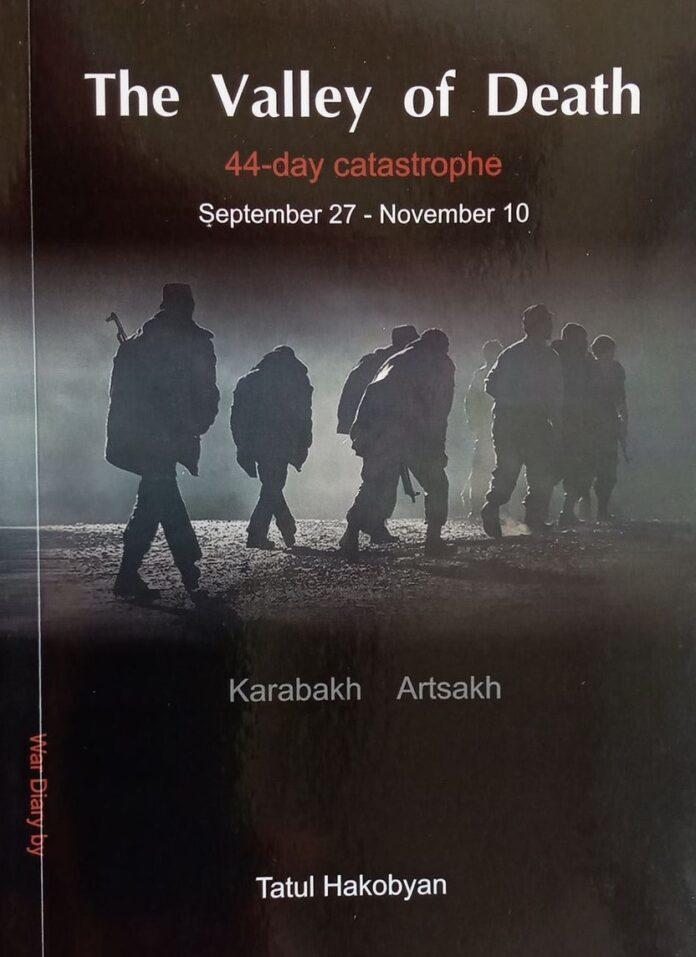Note – This article was published in The Valley of Death by Tatul Hakobyan. The article was first published in 2017.
During his speech at the 6th National Assembly of Armenia, Serzh Sargsyan spoke about his vision of Nagorno Karabakh conflict resolution, indirectly criticizing the negotiations’ process during his predecessors Levon Ter-Petrosyan and Robert Kocharyan. We find it important to remind, that as a high-level public official, Serzh Sargsyan never criticized Levon Ter-Petrosyan and Robert Kocharyan about their policies with regards to Nagorno Karabakh.
On May 18th of 2017, Sargsyan said – “I can understand Baku’s motivation of falsely accusing us for trying to maintain the status quo by all means, however it is unacceptable to hear similar accusations from different political groups in Yerevan”. Sargsyan continues – “The change of the status quo can be acceptable for us, but only in case, if there is a comprehensive solution on the table. Armenia has repeatedly announced about its willingness to move forward with a compromised solution however this can only happen if the right of Artsakh’s people for self-determination is accepted. This was the approach reflected in the Kazan document, which was refused by Azerbaijan, but was not archived at the OSCE, which means that Kazan document is the one based on which negotiations should continue”.
Sargsyan continued his speech by saying that mutual compromises should be essential of the negotiations and not threats by Azerbaijan to solve the issue militarily, if one-sided concessions by Armenia are not made. “We have no interest in prolonging the status quo, leaving this conflict on the shoulders of future generations and exactly because of this reason we spear no effort together with the co-chair countries to find a solution in Nagorno Karabakh”.
Serzh Sargsyan refused to introduce details of Kazan document, thus showing the advantages that the document might have compared to what had been discussed before him. The truth is that one year before this speech, Sargsyan presented some of the details of this document during his interview with Russian journalist Dmitry Kisilyov. At this interview, Sargsyan reminded what was being presented by OSCE Minsk group co-chairs back in 2007, when according to him, there were three main principles – non use of force or threat of use of force, territorial integrity of the states, equality and the right for self-determination of the nations.
“These principles are not in contradiction with each other. Armenia recognizes the territorial integrity of all states, including that of Azerbaijan. In our view, the right for self-determination is not in conflict with the principle of territorial integrity of the states, because territorial integrity is a concept which relates to interstate relations, while self-determination has to do with the relationships between the center (the capital) and a community which lives on its historic land”. This is how Sargsyan explained his understanding of the process in his interview.
According to Armenia’s third president, since 2008 the parties had been close to signing a peace deal and in each case the three principles described above clearly reflected. Here is what he said:
“The Armenian parties, Armenia and Artsakh would pull back their military forces from the security zones around Nagorno Karabakh. These are the 7 territories which Azerbaijanis consider as occupied. By leaving those territories, we maintain the principle of territorial integrity. In this same document, it is also clearly stated that the final legal status of Nagorno Karabakh would be decided by the vote of Nagorno Karabakh’s people, with precise indication of who will be participating at the referendum”.
According to Serzh Sargsyan referendum is the main mechanism to realize people’s right to self-determination. However, whenever the parties had been close to signing a peace deal, Azerbaijani authorities had been bringing up additional preconditions. “In 2011, we thought that everyone is ready to sign the peace document. This was the time when even the US president called me and Azerbaijani president and wished us good luck with the process. Similarly, French president sent letters of encouragement to both of us, while Russian president was personally leading the negotiations. However, at the last-minute Azerbaijan refused the negotiated principles”.
It is important to note, that back in 2001 when Serzh Sargsyan was Armenia’s defense minister under Robert Kocharyan’s presidency, his approach was clear – Sargsyan was willing to change the status quo. In May 2001, at the parliamentary hearings about Nagorno Karabakh Sargsyan responded to accusations about his acceptance of a compromise-based solution suggested by OSCE.
“I have been talking about compromise-based solution since 1990-ies, so there is nothing new in my thinking. Moreover, when I was convincing our military to eliminate Azerbaijani position, the sole purpose of my approach was to create better security conditions and not enlarge the territories of Armenia or Artsakh”, Sargsyan stated.
To the question of what the real borders of Artsakh are, Sargsyan responded.
“The state borders of any country, including ours, are located where you are able to keep them. Yes, I do believe that Agdam is not part of our homeland. If you are involved in negotiations and are trying to full the other party, it creates nothing but irony. I cannot accept the thinking of our public about the liberation of Agdam. We need to take the other side seriously. Yes, there have been territories which we conquered, and we should never be ashamed of this fact. We took over those territories to maintain the security of our homeland. We have openly announced about this back in 1992, in 1994 and I am reaffirming this approach now. This statement may be considered as an undiplomatic one, but it is what it is. We cannot approach this issue from one perspective only and say that Agdam is ours, Mirbashir is Armenian”, concluded Serzh Sargsyan in his speech at Armenia’s National Assembly.












